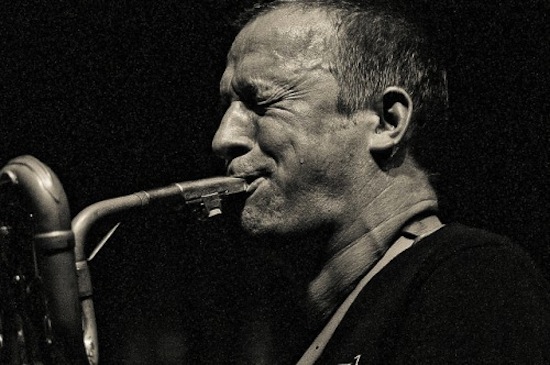Straight outta Umeå with a blazing horn, Mats Gustafsson is a vital force in contemporary music, setting fire to recordings by Sonic Youth, Zu and Peter Brötzmann’s Chicago Tentet, and leading his own groups The Thing and Fire! to new heights of free jazz and garage-psych ecstasy. Recent months have seen him issue superb new albums by those two groups, as well as a live set with Thurston Moore. He’s also been on the road with Fire! and the transatlantic Nu-Ensemblen, and at the time this interview took place, was preparing to take The Thing to the Guggenheim Museum in New York, where they’ll perform with free jazz legend Joe McPhee.
A self-confessed vinyl junkie, Gustafsson somehow finds time amidst all this fevered musical activity to run collectors website Discaholic Corner, where he shares pictures and stories about some of the treasures he’s unearthed in dusty record shops around the globe.
“It’s stupid, I shouldn’t do it, it takes so much time!” he laughs, “It’s my therapy. To go and look for records, to do research, that whole thing for me as a musician and a human being is a complete necessity. I’m sick, I’m a discaholic… but it’s really, really important to put good music out there, and not just rare stuff. There are some exceptions on the website, but most of the records I like to present are really great records which are forgotten. It’s really time consuming, but really great to do”.
Gustafsson caught the collecting bug at an early age, and he’s yet to shake the disease. Discovering his mother’s collection of rock & roll singles as a child led him on a freewheeling journey through punk, free jazz, noise and tropicalia. Gustafsson speaks about his favourite albums with the same passion, fire and love he brings to his own music.
“I took this mission pretty seriously,” he grins, “and tried to put in records that really meant a lot to me and for my music.”


